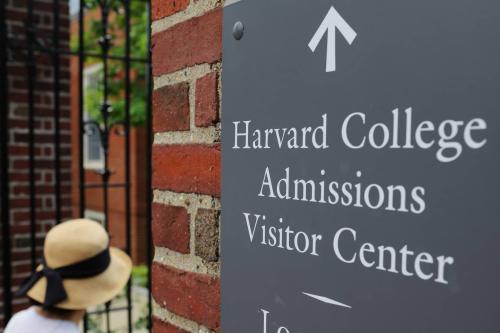There is plenty of soul-searching going on about the state of public debate in America right now. But here’s a small reason to be hopeful: my recent blog post, “A college degree is worth less if you are raised poor,” has generated lots of attention in both traditional and social media, and also dozens of thoughtful comments and questions. Several readers have even personally emailed or called me on their own speculations of what could be going on. (Thank you, by the way!)
The blog was based on research I’m undertaking with my Upjohn Institute colleague Tim Bartik, and we thought many of the points raised deserved a response. The data we are using will allow us to look at a range of possible explanatory factors including occupation, geography, college type, family background, and levels of academic preparation.
Responders to our blog raised a number of other possibilities:
- Mentors, advisors, and role models: Several people mentioned how a lack of mentors can serve to limit low-income students’ horizons. In many cases, these remarks came from the commenters’ personal experience. Mentors or advisors can certainly help students connect the college experience with subsequent job prospects. This is particularly true of first-generation college students. There is also some evidence that high-achieving, low-income students who don’t have friends or role models who have left town to attend a selective college are less likely to do so themselves.
- Social and professional networks: Numerous responders echoed Harvard political scientist Robert Putnam in stressing social capital: networks that can help provide connections to opportunities for further learning and jobs. Low-income students not only may have smaller networks initially, but they may also lack the practice, experience, and resources to develop them further.
- Differences in risk tolerance: Low-income students may be less willing or able to bear the risk of waiting for something better to come along. Because they lack the social safety net that higher-income parents can provide their own kids, low-income graduates may take the first job offer that comes along, because they can’t afford to wait, or they perceive the certainty of a mediocre offer as more desirable than the chance of a great job offer that may not materialize.
- Self-promotion: Perhaps reflecting differential experiences in parenting and the home environment, a few people described (again from personal experience) how coming from a low-income background affected their confidence or their comfort in fitting in with others from a different social class. This discomfort could manifest in a reluctance to ask for assistance from peers, promote one’s own accomplishments, or negotiate for additional salary.
Many of these concepts are hard to pin down empirically. But we are hoping that our data will allow us to at least partially examine their impact. Of course, it is quite possible that adult choices, including college major and occupation, are themselves related to circumstances earlier in childhood.
Tim and I have posted on the Upjohn website some more detailed findings on how patterns differ by race, exact levels of education (instead of a bachelor’s degree or more), and age. We plan to release a more comprehensive report in a few months. Thanks for the responses, and watch this space!


Commentary
So, why is a college degree worth less if you are raised poor? A response to readers’ comments
March 4, 2016